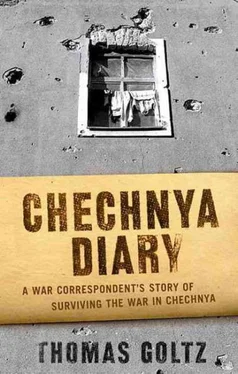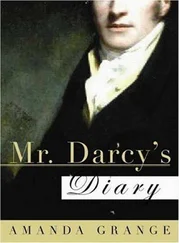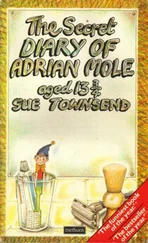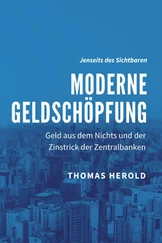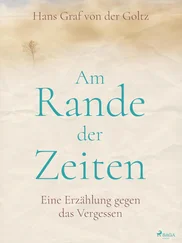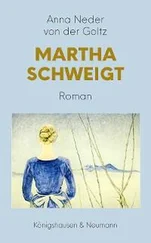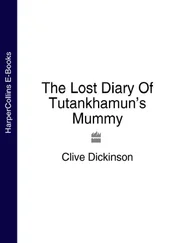Famously, one neighborhood in Moscow announced its intent to secede from the rest of the city and become—what? A new internationally recognized neighborhood?
Ridiculous communal aspirations aside, the biggest question to emerge from the ruins of the USSR was quite simply: What was Russia?
Up until 1991 and the meteoric rise of Boris Yeltsin, “Russia” almost did not exist. In Yeltsin’s words, it was a “ghost state,” a place that had physically defined borders but almost none of the other usual trappings of nationhood, in the usual sense of the word—or even those institutions that the Kremlin had bestowed upon the other fourteen Union Republics that made up the USSR, and even the non-Russian, ethnic-based entities that made up the Russian Federation itself.
There was no Russian Academy of Sciences.
There was no Russian police force.
There was not even a Russian Communist Party.
The reason for this, of course, was the virtual identification of “Russia” with the USSR during the seventy-year Soviet experiment, both inside the USSR and outside of it. The official language of the USSR was Russian. The official culture, from the Bolshoi Ballet to vodka binge-drinking, was Russian. When citizens of the USSR as disparate as Abkhaz from Georgia and Tajiks from Uzbekistan traveled abroad, they were regarded as and almost always accepted themselves as “Russians,” even if their bloodlines contained not one drop of slav-ness, and even if their domiciles were in Sukhumi or Tashkent.
None of this seemed to make much difference, so long as the USSR was a closed system where everybody listened to and obeyed the dictates of the Politburo in the Kremlin. Elections might be held for the local Sovyet , or parliament, in, say, the Komi Autonomous Republic on the Artic circle, but everyone knew that that institution was just window dressing. It was the Central Committee in Moscow that made real decisions.
Then came the era of stagnation under Leonid Brezhnev in the 1970s, followed by the rise of Mikhail Gorbachev in the 1980s and the introduction of the twin concepts of Glasnost and Peristroika. People were allowed and even encouraged to start thinking and talking about how to make a better Soviet Union, which of course meant thinking and talking about what was wrong with it. And in the chat box, the first rumblings of ethnic dissent were first heard. By the late 1980s, the rumblings had turned into a roar.
“Sovereignty and Self-Determination!” was the cry taken up by newly formed national fronts cropping up all over the lands of the USSR—including, oddly enough, the Russian Soviet Federated Socialist Republic. From a mixed crew of dissident human rights activists to right-wing racist dreamers, there emerged a man who would eventually prove himself to be more than Mihkail Gorbachev’s match: Boris Yeltsin.
Now is not the time or place to go into a detailed biography of Yeltsin or a treatment of his showdown with Gorbachev. Both have written their own books on the breakup of the Soviet Union, and books have been written about them and the process in which they were both intimately involved. Suffice it to say that, whatever Yeltsin’s real motives for breaking with Gorbachev and the so-called reformist wing of the Communist Party, his rise to the top of the “Russia First” movement and his election as Speaker of the Congress of Peoples’ Deputies of the Russian Soviet Federated Socialist Republic (RSFSR) in May 1990 was the most direct challenge to Gorbachev’s authority that could be imagined. For the first time in Soviet history, there was an alternative power structure to the Kremlin—a Russian parliament. And it soon began passing decree after decree, ranging from the establishment of Russian security ministries down to and including Russia’s right to secede from the USSR —an act tantamount to seceding from itself.
Due to the obsession with Gulf War One at the time, little of this state-altering process was appreciated by the West. With George Bush (the elder) standing off against Saddam Hussein in Kuwait, who needed to know about the so-called “parade of sovereignties” at play in the USSR? But, while the world watched CNN discover almost real-time bombing in and around the Gulf, the political scene in “the Evil Empire” very quickly started to resemble a flood akin to the water-fetching broomstick in The Sorcerer’s Apprentice . Everyone, from the exiled Volga Germans and transplanted Koreans (not to mention the Yakutians-cum-Sakhas and Sochi-based Shapsugs) was demanding chunks of territory, or at least formal recognition of their “autonomous” status. If there was anything resembling order in the chaos, the common point in most of the declarations was that everyone wanted to move up at least a notch on the Soviet-style sovereignty ladder.
The “autonomous republics” inside the Russian Federation, for example, rejected the word “autonomous,” and claimed to be full-fledged republics with equal status with the largest entity in the Russian Federation itself, namely, the Russian Republic. By early 1992, things were getting nasty. “Sovereignty” among the ethnic entities that made up the Federation was starting to look very much like claims to the right to secede from it—just as the various Union Republics, including the Russian Federation, had separated from the USSR. Like Gorbachev’s desperate (and failed) attempts to save the USSR by getting all the Union Republics to sign on to a new Union Treaty, Boris Yeltsin embarked on his own mission to define (or redefine) Russia.
The result was the new Russian constitution of 1993 that defined the Russian Federal state as consisting of 89 federal units, broken up into 57 administrative territories and 32 ethnically-based entities, including 21 republics, one autonomous territory, and 10 autonomous districts.
There were two dissenting regions, however.
The first was Tatarstan (formerly known in Soviet times as the Autonomous Republic of Tataria), the titular homeland of the Turkicspeaking Muslim people who essentially ruled what we today call Russia from their capital of Kazan, before the rise of the Principality of Moscovy during the Middle Ages. There, the new nationalist president Mintimer Shaimiev held out until 1994, before signing off on a “Treaty on Mutual Delimitation and Delegation of Authority.” It contained a clause saying that the constitution of the Republic of Tatarstan could “coexist” with the constitution that bound the rest of the Russian Federation together, despite significant contradictions between the two legal charters. In real terms, the Tatars had managed to achieve everything except de jure independence from Russia.
The same sort of sweetheart deal was offered to the other holdout republic. But, either due to the failure of the leadership to know when to stop raising the stakes, or possibly due to sheer force of circumstance and the weight of history, the leadership and citizenry of the second holdout state declined to sign off on either the Treaty of Federation or the new Russian constitution. No, it had not “boycotted” either referendum due to any specific reservations or criticism of the documents. The citizens of said state did not bother to vote because they said they were not, had never been, and never would be a voluntary part of Russia—whether Czarist, Soviet or post-Soviet. They were and had always been citizens of a free and independent state, and it did not matter one iota if anybody else in the world thought so or not. If the rest of the world had heard of that country before, it was by the name Chechnya.
The word “Chechen” is a Russianized version of the name of one of the first villages encountered by Czarist Russian troops during an early campaign in the North Caucasus, a place called Chechen-aul. The “Chechen” people call themselves Noxchi . Along with their Ingush cousins to the West (who call themselves Ghalgai ), the Chechens refer to the larger ethnolinguistic community as Vainakh —which translates as “the free people.”
Читать дальше
